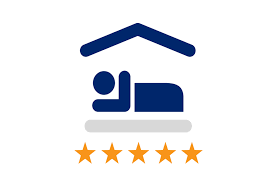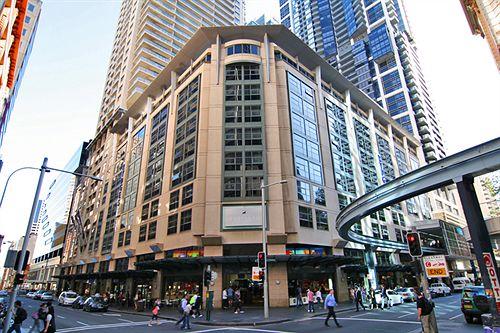PACDEFF 2023
The PACDEFF 2023 Program consisted of 2 days of plenary presentations including four keynote speakers. Day 2 had further plenary presentations plus some parallel workshops and presentations running in the afternoon.
Those presentations which have been provided for release are annotated by the hyperlink. We hope that more speakers will provide their presentations in due course.
PACDEFF Program 2023
Program
Day 1 (12 September)
Plenary Session – Podium Room 3 & 4 (All Day)
0900-0915 Welcome
0920-1005 Keynote 1: Professor Rhona Flin – Emeritus Professor at the University of Aberdeen
1010-1055 Keynote 2: Dr Mike Walker – Director, Transport Safety, ATSB
1055-1125 Morning Tea
1125-1150 Contemporary HF issues in Australian Aviation – CASA (Dr Robert Forster-Lee – TBC)
1150-1215 Learning From All Operations – Operational Learning for Safety and Performance Improvement – Pete McCarthy (Cathay Pacific)
1215-1315 Lunch
1315-1340 “The Unseen Hole in the Swiss Cheese – the Lack of Care and Support for People (and their Families) in General Aviation.” – Angela Garvey
1345-1410 Using Systemic Analysis for Human Factors Safety Improvements – Mark Holmes (Qantas)
1410-1435 Proactive Safety Culture Analysis in a Regional Airline – Capt. Peter Beer
1435-1505 Afternoon Tea
1505-1530 Utilising Realistic VR Scenarios for Training on Complex Jet Aircraft – Capt. Jamie Cross (Griffith University)
1530-1555 ‘How Safety Regulations Become Safety Issues and Why We Need a Red Rule Safety Initiative’ – Dr Adrian Park
1555-1620 Enhanced Integration of NTS Training and Assessment into Existing Defence Training Programs – Ryan Cooper – DFSB
1620-1645 A Pilot’s View of the Engineering Side of the Industry and the Vast Differences in Human Factors Culture – Shane Varga (Air New Zealand)
1645-1700 Day 1 Wrap Up
1830-2130 Conference Dinner (12th Floor)
Day 2 – (13 September)
Plenary Session – Podium Room 3 & 4
0900-0910 Welcome
0910-0955 Keynote 3 – Dr Gail Iles – RMIT Space Program
1000-1045 Keynote 4 – Dr Ian Hosegood, Director of Medical Services, Qantas
1045-1115 Morning Tea
Helicopter Safety Collaborative Human Factors Parallel Forum – Floor 12 North
0900-1045 The Helicopter Safety Collaborative: Mission, Vision, Goals, Enabling Commitments and How a Non-commercial, Safety Collaboration can Help Avert Accidents – Helicopter Safety Collaborative (12th Floor)
1115-1230 The Helicopter Safety Collaborative: Two Key Safety-Shares From the Frontlines / Q and A session / Expressions of Interest
Flight Crew Forum – Podium Room 3 & 4
1115-1140 The Psychological and Physiological Fidelity of Flight Training Simulators for Expert Pilots – Dr Christine Boag-Hodgson (Griffith University)
1140-1205 Human Factors Challenges Pilots Face When Flying in Remote Areas – Dr Sravan Pingali
1205-1230 The Role of Human Factors in Desktop Training Devices for Flight Training – Professor Tim Ryley (Griffith University)
Human Factors Forum 1 – Podium Room 1
1115-1140 Human Performance Challenges in Future Space Operations: A Student Perspective – Assoc. Prof. Selina Fothergill (RMIT University)
1140-1205 Sleep Behaviour in Royal Australian Navy shift workers by shift and exposure to the Sleeptank® app – Nadine Cooper (RAN)
1205-1230 Integrating HF/NTS and SMS Training: Enhancing Safety Culture and Organisational Efficiency – Cherie Love (CASA)
Human Factors Forum 2 – Podium Room 2
1115-1140 ‘Helpful Conversations’ in Pilot Peer Support – Allan Baker
1140-1205 Improved Safety Outcomes Can be Driven From a Renewed Focus on Knowledge, Skills and Experience as it Applies to Aviation Related Mental Wellness – Capt. Herwin Bongers (Air New Zealand)
1205-1230 The COVID Mental Health Effect on Chinese Aviation – Dr Wu Xiaoyu (Griffith University)
1230-1315 Lunch
Human Factors Forum 3 – Podium Room 4
1315-1345 Communication Barriers and Leadership Styles Leading Cabin Crew Millennials in a Multicultural Airline – Dr Marisa de Sousa
1345-1415 ‘Challenges and Strategies for achieving better integration of NTS into regulated flight training’ – Tony Power
1415-1445 Self-care and Managing the Challenges – Tony Merritt (Sydney Clinical Psychology)
Workshops
1315-1445 Workshop 1: NTS challenges and opportunities – Professor Rhona Flin – Podium Room 1 & 2
1315-1445 Workshop 2: ‘Where Emotional Intelligence and Resilience Intersect. Oscar and Juliet; Resilient but too Tolerant?’ – Capt. Chris Smith & Dr Maneerat Tianchai (UniSQ) – Podium Room 3
1445-1515 Afternoon Tea
1515-1645 Workshop 3: FRMS, and Safety Performance Indicators for FRMS – Dr Matthew Thomas – Podium Room 1
1515-1645 Workshop 4: Designing an HF/NTS/CRM Training Program – Lachlan Slatyer (ACE Training Centre) – Podium Room 2
1515-1645 Workshop 5: HF Support Sessions / Performance Coaching Strategies or One-on-One Interventions – Carolyn Vaughan (Qantas) – Podium Room 3
Human Factors Forum 4 – Podium Room 4
1515-1540 Integrating HF in the Project Lifecycle – Making it Happen – (Indra Sadeli and Brian Mok – ASA)
1545-1610 Gaze Response of Pilots to Unexpected Events in Flight – Aruna Ranganathan (CQU)
1610-1645 Unlocking your Team’s Potential. Using Escape Room Methodology to Consolidate Crisis Resource Management Principles – Andi Thompson and Elizabeth Willis (Queensland Health)
1645-1700 Day 2 and Conference Wrap Up
Standby Workshops and Presentations (TBC)




